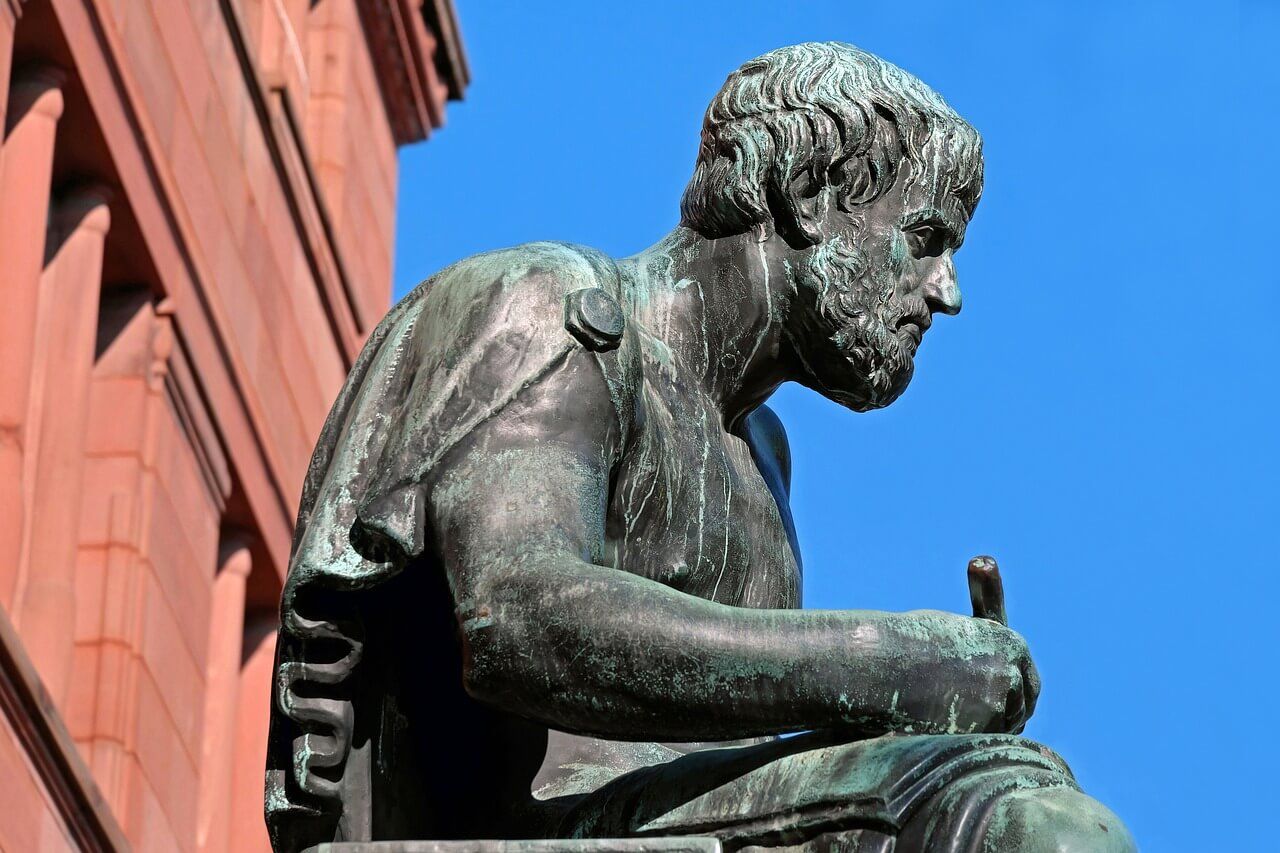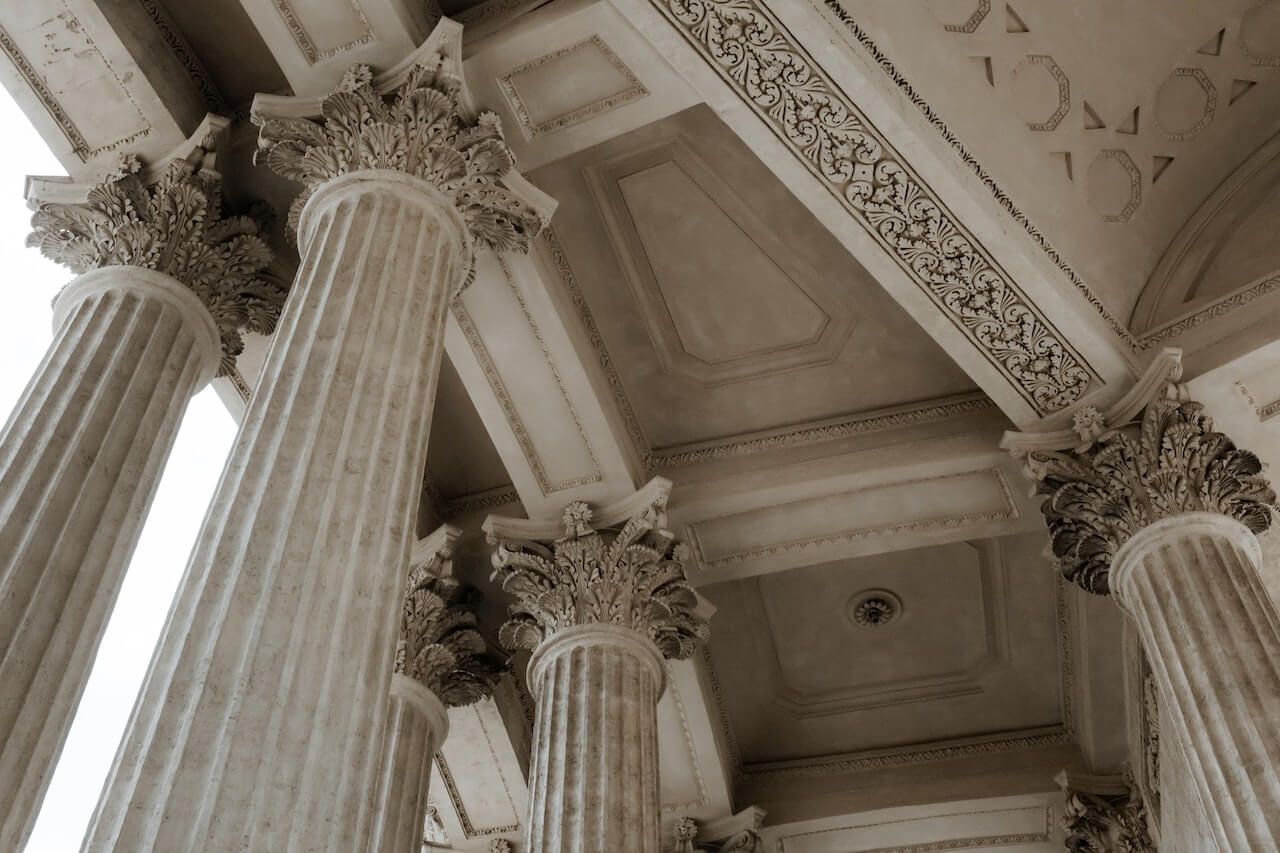Best Liberal Arts Colleges

A liberal arts education offers a well-rounded and intellectually stimulating approach to learning that prepares students for success across a multitude of fields. By focusing on critical thinking, creativity, and a broad understanding of various disciplines, liberal arts colleges provide a strong foundation for personal and professional growth.
The philosophy behind liberal arts centers on the idea that education should go beyond vocational training and focus on nurturing intellectual curiosity, analytical thinking, and a lifelong love of learning.
Liberal arts education has gained popularity in recent years for its creative approach to learning, emphasizing critical thinking, creativity, and a broad understanding of various disciplines. In this Bold article, we will explore the philosophy behind liberal arts education, its importance in developing key skills, national liberal arts colleges in the United States, the admission process for most liberal arts colleges, career opportunities after graduation, and the future of this unique educational approach.
Create a free Bold profile to apply for scholarships for liberal arts colleges!

The Philosophy Behind Liberal Arts
At the core of the liberal arts philosophy is the idea that a well-rounded education encompasses various disciplines, including humanities, social sciences, natural sciences, and the arts. It encourages students to explore diverse subjects, make connections between them, and develop a broad perspective on the world.
Through literature, philosophy, history, anthropology, sociology, psychology, and mathematics courses, students refine their analytical thinking skills, gain a deeper understanding of human societies, and develop the ability to tackle complex issues in a changing global society.
For example, in literature classes, students analyze different works from various time periods and cultures, examining how language, themes, and narrative techniques shape our understanding of the human experience. They may explore the impact of historical events on literary movements or delve into the psychological motivations behind a character's actions.
In philosophy courses, students engage in philosophical debates and explore questions about the nature of reality, ethics, and the meaning of life. They learn to critically evaluate arguments and develop their own philosophical positions, honing their analytical thinking skills and ability to construct logical arguments.
History classes offer students the opportunity to study past events and their significance in shaping the present. By examining primary sources, analyzing historical narratives, and considering multiple perspectives, students gain a deeper understanding of the complexities of human societies and the forces that have shaped them.

Anthropology and sociology courses introduce students to the study of human societies and cultures. Through fieldwork, data analysis, and examining social structures, students explore the diversity of human experiences, challenging their assumptions and broadening their understanding of different ways of life.
Psychology classes delve into the workings of the human mind and behavior, exploring topics such as cognition, personality, and social interactions. Students learn to apply psychological theories and research findings to understand individual and group dynamics, enhancing their ability to empathize with others and navigate interpersonal relationships.
Mathematics courses develop students' logical reasoning and problem-solving skills. Through the study of mathematical concepts and their applications, students learn to think abstractly, analyze patterns, and make connections between different mathematical disciplines. This analytical mindset is valuable in various fields beyond mathematics itself.
Get Matched to Thousands of Scholarships
Create your Bold.org profile to access thousands of exclusive scholarships, available only on Bold.org.
Create Free ProfileKey Disciplines in Liberal Arts
The integration of liberal arts disciplines into undergraduate education allows students to develop a multidimensional perspective, fostering creativity and critical thinking across various domains.
In natural sciences, students explore, through laboratory experiments and scientific inquiry, how to apply the scientific method, analyze data, and draw conclusions based on evidence. This scientific literacy enables them to make informed decisions and contribute to advancing knowledge in fields such as biology, chemistry, physics, and environmental science.
Fine arts courses provide students with opportunities to express themselves creatively and develop an aesthetic sensibility. Whether through painting, sculpture, music, dance, or theater, students explore different forms of artistic expression and gain an appreciation for the power of creativity. They learn to communicate emotions, ideas, and experiences through artistic mediums, fostering self-expression and empathy.
Check out these exclusive art scholarships today!
By engaging with these diverse disciplines, students in the liberal arts gain a comprehensive understanding of the human experience and the world around them. They develop the skills and knowledge necessary to attune to a rapidly changing society and contribute meaningfully to their communities.
Bold.org offers scholarships for liberal arts students. Browse and apply for scholarships now!

Top Liberal Arts Colleges in the United States
The United States is home to several renowned liberal arts colleges that uphold the principles of a well-rounded education. These institutions provide students with a diverse and comprehensive academic experience, preparing them for success in various fields. Let's explore some of the leading institutions:
Williams College
Williams College, established in 1793, is a private liberal arts college in Williamstown, MA. Williams College offers graduate programs in the history of art and development economics. Williams is committed to need-blind admission for U.S. students and guarantees to meet 100% of demonstrated financial need of admitted students for all four years. The college has three academic divisions (languages and the arts, social sciences, and science and mathematics), encompassing 25 departments, 36 majors, and various concentrations and special programs.
Amherst College
Amherst College, founded in 1821, is a private liberal arts college in Amherst, MA. It emphasizes small class sizes with an average of 19 students. The college fosters a commitment to scholarly research, artistic creation, and close colloquy. The majority of classes have fewer than 30 students. Amherst offers 41 majors across the arts, humanities, natural sciences, and social sciences.
Pomona College
Pomona College, founded in 1887, is a private liberal arts college in Claremont, CA. It boasts an average class size of 13, ensuring an intimate learning environment. With 48 majors and minors available, students have a wide range of academic options. An impressive 98% of students live on campus, fostering a close-knit community. Pomona students are encouraged to explore intellectual passions and engage in critical inquiry through strong connections with faculty, staff, and peers.
Swarthmore college
Swarthmore College, founded in 1864 by the Religious Society of Friends, is a private liberal arts college in Swarthmore, PA. It provides a wide range of academic opportunities with over 600 courses and undergraduate research options. The campus spans 425 acres and features beautiful lawns, a creek, wooded hills, and hiking trails.
Wellesley College
Wellesley College, founded in 1870, is a private liberal arts college exclusively for women in Wellesley, MA. The college boasts a vibrant campus life with over 150 student organizations, including cultural centers and multifaith initiatives. Wellesley offers more than 50 majors across various departments, promoting interdisciplinary learning. With an average class size of 17 to 20 students, Wellesley emphasizes personalized education and student engagement.

Bowdoin College
Bowdoin College, established in 1794, is a private liberal arts college in Brunswick, ME. It upholds a need-blind admission policy, ensuring that financial circumstances do not affect the decision to attend. The college cultivates a commitment to critical and open intellectual inquiry, fostering curiosity to ask questions, challenge assumptions, seek evidence-based answers, and draw logical conclusions. At Bowdoin, education is built upon the free exchange of ideas, thriving in various settings such as classrooms, lecture halls, laboratories, studios, dining halls, playing fields, and dormitory rooms.
Claremont Mckenna College
Claremont Mckenna College, established in 1946, is a private liberal arts college in Claremont, CA. It offers need-blind admission, emphasizing leadership accomplishments. With 33 majors, 11 sequences, and a seven-college consortium, students can access over 2,200 classes. Renowned for expertise in economics and government, the college integrates leadership and innovation through various opportunities on and off campus.
United States Military Academy at West Point
United States Military Academy at West Point, established in 1802, is a federally funded public institution located in West Point, NY. The United States Military Academy at West Point features an average class size of 15-18 students. The academy offers a wide range of academic majors, with 36 options to choose from. Additionally, approximately 62 academic clubs and forums are available to enhance the learning experience. West Point is committed to a rigorous academic program and military service.
Middlebury College
Middlebury College, founded in 1800, is a private liberal arts college in Middlebury, VT. It is recognized for its leadership in language instruction and global studies. The college offers diverse academic opportunities with over 850 courses available across 45 majors, including STEM and preprofessional programs. With an average class size of 16, Middlebury ensures a personalized learning experience for its students.
Harvey Mudd College
Harvey Mudd College, established in 1955, is a private liberal arts college in Claremont, CA. It is a leading institution for engineering, science, and mathematics education in the United States. The college aims to educate well-rounded engineers, scientists, and mathematicians with a strong foundation in the humanities, social sciences, and the arts. This interdisciplinary approach prepares students to become leaders in their respective fields, with a comprehensive understanding of the societal impact of their work.
These liberal arts colleges focus on liberal arts curriculum, providing students with rigorous academic programs, individualized support, and exceptional opportunities.
Check out the most popular college majors to learn more about college programs!

The Importance of Liberal Arts Education
Liberal arts education gives students a strong foundation in thinking critically and problem-solving, preparing them for success in diverse fields. By encouraging intellectual exploration and fostering creativity, liberal arts colleges equip students with the ability to attune to a rapidly changing world.
Liberal arts colleges provide a supportive environment where students are encouraged to explore diverse perspectives and engage in rigorous intellectual discussions. Through lively debates and thoughtful analysis, students develop the ability to think critically and consider multiple viewpoints. This not only enhances their problem-solving skills but also fosters empathy and understanding.
Developing Critical Thinking Skills
Liberal arts education cultivates thinking critically by teaching students to analyze complex issues, evaluate evidence, and synthesize information. It fosters an environment of diverse perspectives, lively debates, and thoughtful analysis, enhancing problem-solving skills and fostering empathy. Additionally, it encourages students to question assumptions, challenge biases, and develop intellectual independence, preparing them for success in an evolving world.
Furthermore, liberal arts empower students to question assumptions, challenge biases, and develop their own perspectives. This intellectual development is essential for personal growth and success in today's rapidly changing world.
Fostering Creativity and Innovation
Liberal arts colleges place great emphasis on fostering creativity and innovation. Encouraging students to explore different disciplines provides a fertile ground for cross-pollination of ideas and unconventional problem-solving approaches. This multidisciplinary exposure sparks innovation and encourages the development of creative thinking skills.
Moreover, liberal arts nurture strong written and verbal communication skills, enabling students to effectively convey their ideas and collaborate with others. These skills are essential in today's interrelated world, where effective communication is key in any profession. In addition to fostering creativity, liberal arts also stimulate students to develop a sense of curiosity. Students are encouraged to explore their passions and pursue independent research projects.
Furthermore, liberal arts colleges often provide ample opportunities for experiential learning, such as internships, study abroad programs, and community engagement projects. These hands-on experiences enhance students' understanding of real-world issues and allow them to apply their knowledge and skills in practical settings. This combination of theoretical knowledge and practical application prepares students for the complexities and challenges of the professional world.

Admission Process for Liberal Arts Colleges
The admission process for liberal arts colleges is comprehensive and thorough, evaluating applicants based on various components. These components aim to assess the applicant's academic abilities, personal qualities, and potential for success in a liberal arts education.
Application Requirements
When applying to a liberal arts college, applicants are required to submit several documents and materials to provide insight into their capabilities and achievements. These typically include:
- High school transcripts: These transcripts record the applicant's academic performance throughout their high school years, including their grades in various subjects and overall GPA.
- Standardized test scores: Many liberal arts colleges request applicants to submit their scores from standardized tests such as the SAT or ACT. These scores help colleges assess applicants' aptitude and readiness for college-level work.
- Letters of recommendation: Applicants are usually asked to submit letters of recommendation from teachers, mentors, or other individuals who can speak to their academic abilities, personal qualities, and potential in a liberal arts college.
- Personal statement: A personal statement is a crucial component of the application process. It allows applicants to showcase their unique experiences, motivations, and aspirations. It is an opportunity for applicants to demonstrate their passion for interdisciplinary learning and intellectual curiosity.
- Supplementary essays: Some liberal arts colleges may require applicants to submit additional essays or respond to specific prompts. These essays provide applicants with the chance to further express their interests and motivations, as well as demonstrate their writing skills.
- Interviews: In some cases, colleges may require applicants to participate in interviews. These interviews can be conducted in person or virtually and provide an opportunity for applicants to converse with a college representative. The interviews help colleges assess applicants' communication skills, personality, and fit with the institution.
Tips for a Successful Application
While the admission process for liberal arts colleges can be competitive, several tips can help applicants stand out and increase their chances of success:
- Emphasize your passion for interdisciplinary learning and intellectual curiosity in your personal statement: Liberal arts colleges value students eager to explore various academic disciplines and make connections between different fields of study. Highlighting your enthusiasm for interdisciplinary learning can demonstrate your fit with the college's educational philosophy.
- Showcase your unique experiences, extracurricular involvement, and leadership qualities in your application: Liberal arts colleges often seek well-rounded individuals who have demonstrated a commitment to their interests and have positively impacted their communities. Highlighting your involvement in extracurricular activities, leadership roles, or community service can provide evidence of your engagement and potential contributions to the college.
- Seek feedback from teachers, mentors, or guidance counselors on your personal statement and essays: It is essential to receive constructive feedback on your application materials to ensure they accurately reflect your strengths, aspirations, and unique qualities. Teachers, mentors, or guidance counselors can provide valuable insights and help you refine your essays to make them more compelling and impactful.
Following these tips and submitting a thoughtful application can increase your chances of admission to a liberal arts college. Remember to approach the process authentically and showcase your genuine passion for learning and personal growth.

Career Opportunities After Graduating from a Liberal Arts College
A common misconception about liberal arts education is that it limits career options. However, in many liberal arts programs, graduates have diverse skill sets, which are highly sought after in today's job market.
Common Career Paths
Liberal arts graduates pursue careers in a wide range of fields, including business, law, education, journalism, non-profit organizations, and the arts. Their ability to think critically, communicate effectively, and attune to new challenges suits them well for these professions.
Many pursue careers in education as teachers or professors, utilizing their strong communication and critical thinking skills. Others enter fields such as writing, journalism, and publishing, leveraging their research and writing abilities. Some find careers in public service, working in government agencies or non-profit organizations.
Business and management roles also attract liberal arts graduates, thanks to their strong leadership and communication skills. Additionally, they may choose careers in law, social sciences and research, non-profit organizations, arts and cultural institutions, communications, media, or research and academia. The interdisciplinary skills acquired through a liberal arts education make graduates adaptable and well-prepared for various professional fields.
These are only a few of the many career paths you can take with a liberal arts degree.

The Future of Liberal Arts Education
The future of liberal arts holds significant potential and relevance in an ever-changing world. As society continues to evolve, the role of liberal arts education remains vital in shaping informed and engaged citizens. The future of liberal arts education holds great potential to attune to the changing needs of learners and prepare them for the challenges of the 21st century.
Trends and Predictions
- Integration of technology: many Liberal arts schools and colleges are leveraging technology to enhance the learning experience. From online courses to virtual reality simulations, technology is being utilized to foster interaction, collaboration, and engagement.
- Global perspectives: With a focus on global interrelations, liberal arts education increasingly incorporates cross-cultural experiences, study abroad programs, and courses exploring global issues.
The Role of Liberal Arts in the 21st Century
In our fast-paced and complex world, the ability to think critically, attune to our environment, and embrace diverse perspectives has never been more critical. Liberal arts education equips individuals with the skills needed to navigate uncertainty, innovate, and contribute meaningfully to their communities. Through its interdisciplinary approach, liberal arts education remains essential in preparing lifelong learners and leaders who can create positive change in an ever-changing world.

Frequently Asked Questions About Liberal Arts Colleges
Are liberal arts colleges only for students interested in the humanities?
Liberal arts colleges aren't just for humanities enthusiasts. Sure, they emphasize humanities subjects, but they offer a range of programs in the social sciences, natural sciences, and arts. So, students with all academic interests can find the right programs and dive into interdisciplinary exploration at liberal arts colleges.
What are the class sizes like at liberal arts colleges?
Liberal arts colleges have small class sizes, promoting personalized attention and interaction with professors. This creates an environment for meaningful discussions, active participation, and close engagement with peers and faculty members, fostering a supportive academic experience.
Are there opportunities for undergraduate research at liberal arts colleges?
Liberal arts colleges support undergraduate research through opportunities such as hands-on research projects, faculty collaboration, and student-led research funding.
Explore our Scholarship Blog for insights on liberal arts majors and higher education.